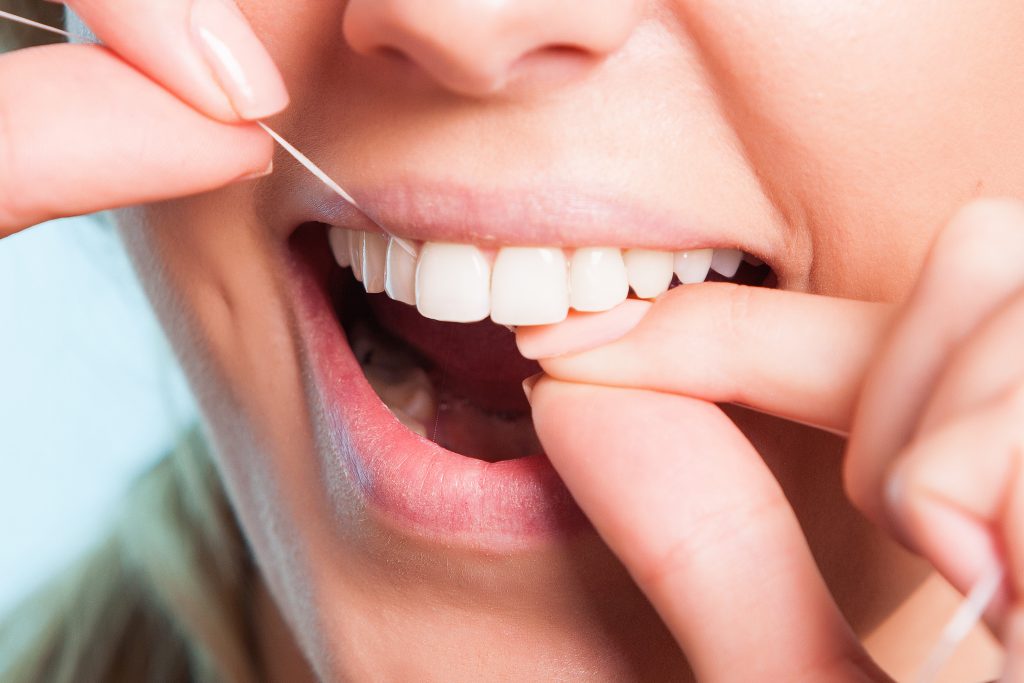

Periodontal disease, also called gum disease, is a common problem among adults. In fact, nearly half of all Americans over the age of 30 have some degree of gum disease. In the early stages you may notice bleeding when brushing, but did you know that it can lead to tooth loss if left untreated? Luckily, it’s highly treatable when caught early. Read on as Dr. Munro discusses how gum disease can lead to tooth loss and what you can do to prevent it from happening to you.
What is Periodontal Disease?
Typically caused by poor oral hygiene that allows bacteria and plaque to build up, periodontal disease is an infection of the gum tissue and bone that hold your teeth in place. The infection causes inflammation which, if left untreated, causes your gums to become sore, swollen, and bleed easily. As the infection progresses it can lead to loosened teeth and eventually to tooth loss. Some of the symptoms to look for that may indicate unhealthy gums include:
- Sensitive, swollen, red, and/or bleeding gums, especially while brushing and flossing
- Recessed gums, or pockets between the teeth and gums
- Loose or shifted teeth and changes in bite
In addition to tooth loss, gum disease is associated with chronic inflammatory conditions such as heart disease and diabetes. If you notice any of the symptoms mentioned it’s important to have your mouth examined so that gum disease treatment can be started as soon as possible if necessary. If treated in the early stages, gum disease can be reversed and serious dental problems minimized.
How Gum Disease Causes Tooth Loss – The Stages of Gum Disease
If left untreated, gum disease will continue to progress through these stages, ultimately leading to tooth loss.
Gingivitis – Periodontal disease begins as an accumulation of bacteria and plaque along the gum line, caused by insufficient brushing, flossing, and professional cleanings. One of the first signs of gingivitis is seeing blood when brushing and flossing. Luckily, gum disease is very treatable at this point.
Periodontitis – Left untreated, gingivitis can progress to periodontitis in which the gums pull away from the tooth roots and form deep pockets that further collect bacteria and plaque. During periodontitis, infection destroys the supportive tissues and bone, leading to loosened teeth and shifts in the bite. Gum disease treatment is still beneficial at this stage and can help prevent tooth loss.
Advanced periodontitis – As periodontitis advances, there is a higher risk of tooth loss as teeth lose stability due to diminished bone density. These teeth often need to be removed or they may fall out on their own.
Gum Disease Prevention and Treatment
The power to prevent gum disease is in your hands. Proper brushing and flossing can help remove the bacteria that causes gum disease. We recommend brushing for at least two minutes, twice a day, and flossing at least once a day. It’s also important to see your dentist for a checkup and professional cleaning at least twice a year. If you already have gum disease it’s important to seek professional periodontal treatment as soon as possible to stop its progression and prevent further damage to your gum and supportive tissues.
At Parkview Dental, we offer thorough hygiene visits to find potential problems early so that treatment can be started. During your hygiene visit with Dr. Munro, he will take a minimally invasive approach to examine your mouth for any signs of disease or other dental problems. These visits typically include x-rays to check for any developing conditions, CaMBRA testing (Caries Management by Risk Assessment) to check for biofilm that typically signals a bacterial infection, and a thorough cleaning with fluoride application. Dr. Munro will discuss any issues that need to be addressed and explain any treatment options so you can make the best decision for your care.
Contact Parkview Dental to Schedule an Appointment
Gum disease is the leading cause of tooth loss in the United States, but you don’t have to let it damage your smile. Even if it’s been a while since your last checkup or if you suspect you have gum disease, we can help! Schedule an appointment with Dr. Munro at Parkview Dental today!
